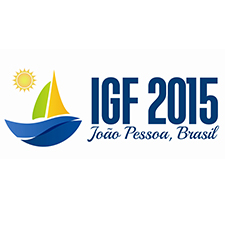Open forum: DiploFoundation and the Geneva Internet Platform: Ideas, words, and actions
12 Nov 2015 16:00h - 17:00h
Event report
DiploFoundation hosted an open forum where it highlighted the Geneva Internet Platform (GIP), an Internet governance (IG) initiative supported by the Swiss government. Dr Tereza Horejsova, Coordinator of Geneva Internet Platform, presented the three pillars of the GIP:
1. A physical platform in Geneva
2. An online platform and observatory
3. An innovation lab
She explained how the GIP is a one-stop-shop for diplomats and all IG issues. Every month, there are 60 minute briefings in the office in Geneva with remote participation that covers all aspects of the month’s IG issues.
Every month, they publish the Digital Watch newsletter, which is curated in partnership with the Internet Society (ISOC). The newsletter is an unbiased summary of the latest IG developments — including a monthly barometer on IG issues in terms of relevance.
The GIP is also providing a comprehensive coverage of the 2015 Internet Governance Forum (IGF) via daily briefings, both online and in print, and includes data mining.
GIp Digital Watch content is curated by individuals, not by algorithms compiling information. Dr Horejsova discussed that GIP also includes prefix monitors that examines the use of a prefix at IGFs and compares it across the years.
She stressed that the GIP monitors 42 IG issues organised under 7 umbrella categories, known as baskets, and further analysis of all of these issues is available on the GIP website. It also lists IG actors and instruments, such as treaties and IG-related documents.
Thomas Schneider, Head of the Department of Culture and Education for the Swiss government, then spoke about the Swiss government’s support of the GIP, as it was started as an outlet for neutral reporting of facts related to IG and digital politics. GIP works strongly with governments as well as providing training to diplomats and other forms of cooperation.
When Dr Horejsova was asked about DiploFoundation offering a doctorate in IG and diplomacy, she said: ‘Supporting research on internet and diplomacy is extremely close to our heart.’ However, currently they only offer a Masters of Arts in diplomacy with a concentration in IG.
Responding to the question of what they would do if they had more funding, Tereza said: ‘Diplo is a project financed organisation, so our projects and plans are not entirely in our hands. We always need to have funding support for the work that we are doing. So, this directs our future in a way while still insisting on being very neutral and committed to our mission.’ She underscored that if they had more resources, scaling up would be the next step as ‘it’s a new-born baby’. Expanding and strengthening their curators and adding more multilingual content is also high on their list.
Responding to a question, Tereza also affirmed that GIP works with the Council of Europe. In response to another, she stressed that DiploFoundation and GIP would like to work more in the Asia-Pacific region, and also described current projects that are ongoing in the region.
By Michael Oghia
Related topics
Related event

